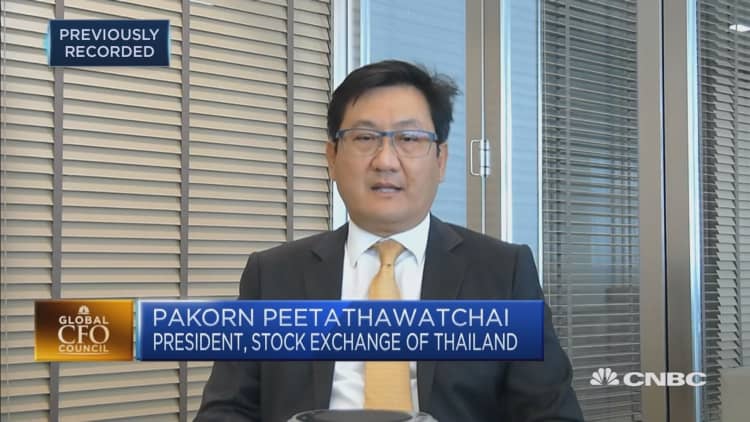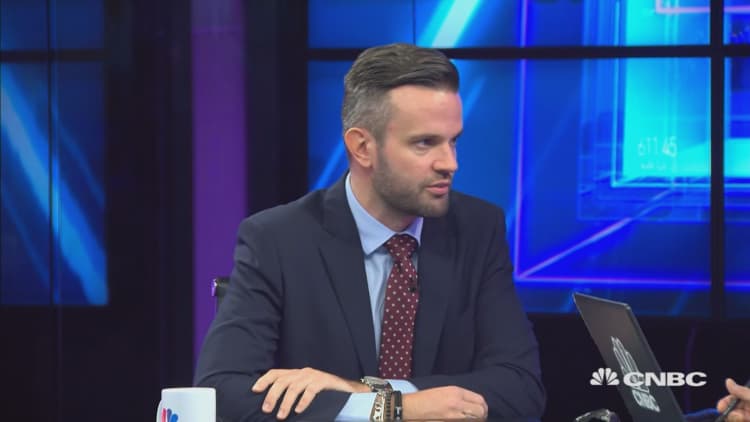In a historic first for Thailand, a senior member of the royal family is running in a general election — a move that some suspect could increase the monarchy's overall power in the country.
News emerged early on Friday that Princess Ubolratana Rajakanya, the elder sister of King Maha Vajiralongkorn and the oldest child of the late King Bhumibol Adulyadej, will be the prime ministerial candidate for the Thai Raksa Chart Party in the upcoming March 24 election. The party is closely linked to former Prime Minister Thaksin Shinawatra, who is widely believed to have played a role in Ubolratana's candidacy.
Her decision to run could change the entire outlook for the long-delayed election, which will be the country's first after nearly five years of military rule. Given how revered the monarchy is in Thai culture — nearly every establishment and household has portraits of the king — it will be hard for other candidates to run against the princess and equally tough for voters to consider other choices, analysts told CNBC.
Further complicating the picture is the fact that Thailand's current prime minister, Prayut Chan-o-cha, a now-retired army chief who took power in the military's 2014 coup, also threw his hat into the ring Friday under the pro-military faction Palang Pracharat. The development could potentially result in a showdown between the royal family and the military.
The potential significance of Ubolratana's candidacy
The princess' decision is an unprecedented move in a country where the royal family has traditionally stayed out of politics.

Under Thailand's system of constitutional monarchy, the king traditionally acts as a figurehead leader while the prime minister runs the country. The king, who lived what international media called a playboy lifestyle before taking over the throne in December 2016, has appeared to seek greater involvement in state affairs.
"Ever since the new king came on the scene, he's demonstrated that he won't be a passive monarch, he's wielding power in a way that Thai kings have never done before. The fact that his sister is running for PM is likely part of an emerging narrative in which the monarchy is looking to increase its role," said Brian Eyler, director of the Stimson Center's Southeast Asia program.
If (Ubolratana) wins and (former Prime Minister) Thaksin does comes back, the military will find itself in the worst position it's been since the early 1990s, practically checkmated.Benjamin Zawackiindependent Bangkok-based analyst
In 2017, the king made several changes to the constitution — a rare act of political intervention by a sitting monarch. For instance, he introduced a clause that named the monarch as the key arbiter in times of constitutional upheaval, which effectively makes it possible for the monarchy to become involved in political matters.
Ubolratana's move may be part of a broader increase in the monarchy's influence, echoed Paul Chambers, a lecturer for international affairs at Thailand's Naresuan University.
"The king has been seeking to grow the monarchy as a political force and get more involved in state affairs," he said. "If his sister becomes PM, that would cement the monarchy's participation in daily politics."
It wouldn't be the first time that a brother and sister held dominant positions in Thai politics. Billionaire Thaksin Shinawatra and his sister Yingluck Shinawatra are former prime ministers who continue to enjoy enormous influence in their home country despite both of them living in exile after fleeing corruption charges.
Ubolratana's lifestyle hasn't always followed traditional royal pathways. The 67-year old relinquished her royal title in 1972 when she married a foreigner and moved to the U.S., but she eventually returned to Thailand after her divorce. "She's acted in Thai films, lived abroad and is an active social media user, which makes her very accessible to society," said Benjamin Zawacki, a Bangkok-based analyst and author of "Thailand: Shifting Ground Between the US and a Rising China."
"She also doesn't possess all royal privileges and isn't covered by Thailand's strict lese majeste laws, which leaves her open to criticism unlike her brother," continued Zawacki, a former visiting fellow at Harvard University's human rights program.
While she may technically not be covered by those rules, her royal heritage will still instill caution in those considering criticizing her, experts said.
Thaksin's role
Ubolratana's chances at winning are considered strong since she represents a group affiliated with Thaksin, a kingmaker whose parties and affiliated factions — such as the opposition Pheu Thai — have won every Thai election since 2001.
"Thailand has long faced a cycle of Pheu Thai candidates winning elections, the military not accepting their tenure, a coup happening and then plans to return to democracy in which Pheu Thai candidates win again," said Eyler. "This might be the catalyst that finally breaks that cycle."
The link between the princess and Thaksin is of great interest to analysts, many of whom suspect a new alliance between the monarchy and the former prime minister.

"If she wins, it at least creates the possibility of Thaksin returning to Thailand — a scenario that would be almost inconceivable with any other PM, including one from a party Thaksin supports," Zawacki said of Ubolratana. "If she wins and Thaksin does comes back, the military will find itself in the worst position it's been since the early 1990s, practically checkmated."
The role of the military
Current Prime Minister Prayut's candidacy is seen as the real wild card because it's not entirely clear what his intentions are. The military and monarchy in Thailand have always been closely aligned so the notion of a potential power struggle between the two seems unthinkable to most.
That's why some experts believe Prayut may eventually bow out of the race.
"It's possible to envision a scenario in which a grand coalition emerges with Prayut dropping out to support the princess as PM," said Chambers. "He wouldn't dare oppose her, nor would his party so he may have already communicated to the palace that he will be running to support her."
Others also echoed the idea of the military supporting the princess.
"From a parliamentary standpoint, the military retains the upper hand because it controls the 250-seat upper house," said Zawacki. "You need 376 parliamentary votes to win the premiership, which may not be possible for Pheu Thai and the Thai Raksa Chart Party, so some military-backed senators may have to shift their presumed allegiance from the military party Palang Pracharat to vote for Ubolratana."
Prayut's domestic popularity has recovered as of late, boosted in part by his administration legalizing medical marijuana last month. Based on a January survey by the National Institute of Development Administration, a Bangkok university, the former army general was the most popular choice among a range of candidates for prime minister — followed by Pheu Thai candidate Khunying Sudarat Keyuraphan.
"All this makes for very interesting political theater, we'll have to wait and see to see what Prayut does," said Eyler.

